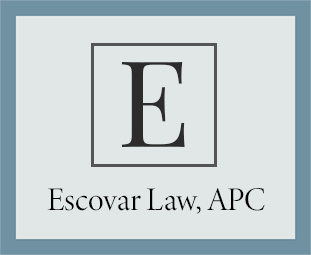Recently, at the Airport Courthouse in Los Angeles County, Attorney Steve Escovar was able to successfully litigate a post-conviction Penal Code section 1473.7 Motion to vacate our client’s Penal Code section 664/487(a), “Attempted Grand Theft” conviction from 1998.
Our client originally immigrated to the United States in 1995 under an Asylum Petition based on the religious violence in Nigeria relating to the Christian-Muslim strife. Our client was now seeking to become a United States citizen but was advised by his immigration attorney that his conviction to this offense would make him ineligible for naturalization. Our client’s offense is deemed an aggravated felony for federal immigration purposes because it is a burglary offense for which the term of imprisonment is at least one year. Generally, for purposes of qualifying for naturalization, a person cannot be found to be a person of good moral character if the person has at any time been convicted of an aggravated felony. Thus, our client needed to vacate this conviction and re-negotiate to an immigration neutral offense in order to be eligible to apply for United States citizenship.
In our motion, we relied on the analysis in the recently decided appellate opinions of People v. Mejia (2019) 248 Cal. Rptr. 3d 819, People v. Camacho (2019) 32 Cal. App. 5th 998, and People v. Ruiz (2020) 49 Cal. App. 5th 1061, to argue that our client failed to meaningfully understand and defend against the immigration consequences of his plea. The minute order from the date of our client’s plea purported that our client was advised that a conviction of the offense for which he had been charged “may” have the consequences of deportation, exclusion from admission to the United States, or denial of naturalization pursuant to the laws of the United States. However, we argued that our client should have been advised that the immigration consequences that would result from his conviction would be mandatory and permanent. We argued that our client should have been advised that the offense charged with a sentence of 365 days in jail or greater would categorize the offense as an aggravated felony and render him permanently ineligible for naturalization. We supported our motion with evidence that, had our client been properly advised of the immigration consequences of his plea, he would have sought to negotiate to an immigration neutral disposition or, failing that, gone to trial.
At the first hearing on the motion, the prosecution submitted on our motion and the court proceeded to grant our motion to vacate the 1998 conviction for a violation of Penal Code section 664/487. The People then announced unable to proceed and the offense was completely dismissed pursuant to Penal Code section 1382, ”Unable to Proceed.”
DISCLAIMER:
The information in this blog post (“post”) is provided for general informational purposes only, and may not reflect the current law in your jurisdiction. No information contained in this post should be construed as legal advice from Escovar Law, APC or the individual author, nor is it intended to be a substitute for legal counsel on any subject matter. No reader of this post should act or refrain from acting on the basis of any information included in, or accessible through, this Post without seeking the appropriate legal or other professional advice on the particular facts and circumstances at issue from a lawyer licensed in the recipient’s state, country or other appropriate licensing jurisdiction. The information on this website is a communication and is for informational purposes only. The facts of every case are unique and nothing on this page or on this website should be taken as legal advice for any individual case or situation. The information on this website is not intended to create an attorney-client relationship and viewing of this information does not create an attorney-client relationship. The result portrayed in this advertisement was dependent on the facts of this case. Results will differ if based on different facts.

